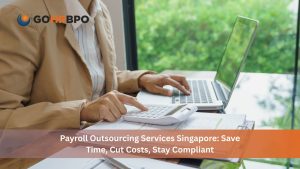Payroll, a critical function for any business, involves the calculation, recording, and disbursement of employee compensation. In Singapore, a complex landscape of labor laws and regulations governs payroll processes. Staying updated with the latest legislative changes is essential to ensure compliance and avoid hefty penalties. This blog post will delve into key payroll and compliance updates expected in Singapore for 2025.
Payroll: Understanding the Importance of Payroll Compliance
Non-compliance with payroll regulations can lead to severe consequences, including financial penalties, legal repercussions, and damage to your company’s reputation. By staying informed about the latest legislative updates, you can protect your business, maintain employee trust, and streamline your payroll operations.
Payroll: Anticipated Payroll and Compliance Changes in 2025
While specific details for 2025 might not be entirely clear at this point, based on recent trends and government initiatives, we can anticipate potential changes in the following areas:
1. Minimum Wage Adjustments
Singapore has been gradually increasing its minimum wage to support lower-income workers. It’s likely that there will be further adjustments to the minimum wage in 2025. Employers need to stay updated on these changes to ensure compliance and budget accordingly.
2. Central Provident Fund (CPF) Contributions
The CPF is a mandatory social security savings scheme in Singapore. Changes to CPF contribution rates or eligibility criteria are common. Employers must stay informed about any modifications to avoid underpayment or overpayment of CPF contributions.
3. Income Tax Updates
Singapore’s tax landscape is subject to regular reviews. Changes in personal income tax rates, tax reliefs, or tax filing procedures might be introduced in the annual Budget. Employers need to understand these updates to accurately calculate income tax deductions.
4. Employment Act Amendments
The Employment Act governs the employment rights of employees. Periodic amendments are made to address evolving workplace dynamics. Employers should be aware of any changes to employment contracts, working hours, overtime pay, and other employment-related matters.
5. Foreign Worker Levy and Quota Updates
Businesses employing foreign workers are subject to levies and quotas. The government may adjust these policies to manage the foreign workforce and support local employment. Employers reliant on foreign workers must stay informed about any changes.
6. Data Privacy and Cybersecurity
Singapore has stringent data protection laws. With increasing cyber threats, the government may introduce stricter regulations to safeguard employee data. Employers must implement robust data protection measures and comply with the latest data privacy requirements.
Payroll: Tips for Payroll Compliance in 2025
- Stay informed: Regularly monitor government announcements and updates related to payroll and employment laws.
- Conduct regular audits: Review your payroll processes and systems to identify potential compliance gaps.
- Invest in payroll software: Utilize payroll software to automate calculations, reduce errors, and improve efficiency.
- Seek professional advice: Consult with HR or payroll experts to ensure compliance and address complex issues.
- Build strong employee relationships: Maintain open communication with employees regarding payroll matters and address concerns promptly.
Suggested Read: Payroll Software For Singapore
Conclusion
Navigating the complex landscape of payroll and compliance in Singapore can be challenging. However, by staying informed about the latest legislative updates and implementing effective compliance practices, businesses can mitigate risks, protect their reputation, and foster a positive work environment.






